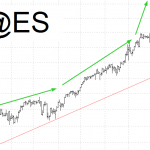A report from the World Federation of Exchanges (WFE) noted that 40% of the crypto trading platforms are decentralized and make use of distributed ledger technology. On the other hand, the majority, or 60%, of platforms make use of Central Limit Order Books (CLOBs), quite similar to regulated exchange platforms.
The WFE report noted that there are a total of 500 crypto trading platforms offering various crypo linked products and services. The survey saw participation from several crypto platforms offering key insights into retail and institutional demands.
The report noted that many crypto platforms opted to rely on an off chain CLOB system for price oracles, quote display and order execution. These entities only use the blockchain for settlement and custody purposes This means traders do not interact directly with the DLT, which eventually helps in saving on transaction cost. In this way, the transaction fees only apply when orders are settled on the blockchain. Crypto-trading platforms with this type of arrangement are called centralized platforms (CEX).
According to the survey, retail demand for crypto-linked products and services is higher compared to institutional demand, except for custody services. Institutional giants have shown a greater requirement for crypto custody services, and demand is higher. Based on the different types of product demands by the two segments of investors, the report estimates that retail customers are less aware about the importance of investor protection.
Related: Scam alert: MetaMask warns users of deceptive March 31 airdrop rumors
Talking about the liquidity and customer demand, the report found that centralized exchanged enjoy a higher trading activity despite decentralized platforms offering lower transaction fees. The report also shed light on the difference in price for same trading pairs on different platforms, leading to arbitrage opportunities. However, the WEF report claimed this type of price fluctuation highlights a potential inefficiency issue in the crypo market.
The report further found that despite most countries imposing know-your-customer requirements, both centralized and decentralized crypto trading platforms have fallen short in implementing such measures due to lack of uniform crypto regulations.
Magazine: How to protect your crypto in a volatile market: Bitcoin OGs and experts weigh in







Leave A Comment